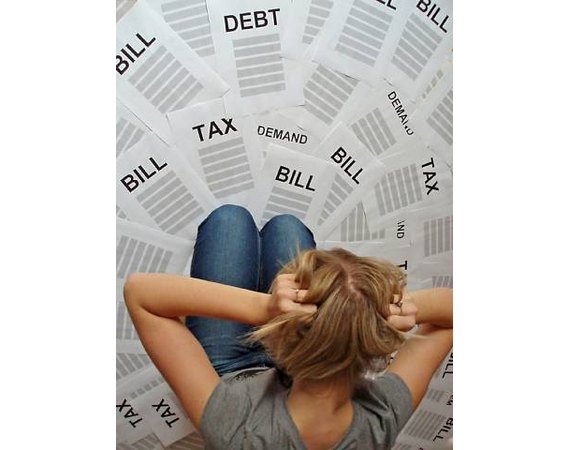
Consolidating debt is an easy task in theory; you take some or all of your credit accounts and combine them into one account so you can enjoy streamlined finances as well as a potentially lower interest rate and monthly payment. The trick is to find a lender willing to consolidate all your debt into one account while also making sure it's a financially advantageous move for your situation. Consolidating debt is not a surefire solution to debt problems, but it can help many people tremendously.
The Facts
A debt consolidation involves taking two or more accounts and combining them into one account. While some people will consolidate two or three accounts, other people may consolidate several accounts at once. Consolidating can be accomplished in a few different ways. Transferring a few credit card balances to one account is considered a consolidation, as is obtaining an installment loan and paying off accounts with the loan proceeds. Using a cash-out mortgage refinance or equity loan to pay off debt is also considered consolidation. A loan does not have to be classified as a "debt consolidation loan" to be used to combine several accounts, but some lenders offer special interest rates for loans that are used for this purpose.
Benefits
The benefits of consolidating debt can be numerous. Many consumers find that the process of paying bills is much easier when there is only one payment to make each month instead of several. It is easier for some people to concentrate on making a concerted effort to pay off one account instead of dealing with a few. Consolidation can save borrowers quite a bit of money in interest payments as long as the interest rate is lower for the new loan than it was for the existing accounts. Monthly payments are often lower for one consolidated account than they are for several smaller accounts.
Risk Factors
Sometimes consolidation isn't the best decision. Consolidating accounts that have tax-deductible interest, such as mortgage debt or some student loans, into loans that aren't tax-deductible can wind up costing the borrower more money in the long run. Consolidating debt into an equity loan can lead to foreclosure if the borrower does not keep up on the payments. Additionally, if borrowers do not close all the accounts that were consolidated, they may start using them again and wind up with more debt than they started with before the consolidation. To avoid these risk factors, potential borrowers must take care to find the best consolidation loan with the most attractive terms while also closing all other accounts once they have been paid off by the new loan.
Time Frame
Consolidation can take some time, especially when an equity loan is involved. Just because a consolidation loan is approved does not mean that the other accounts have been paid off in their entirety. The actual consolidation may not be complete for one or two payment cycles, so borrowers should always continue to make payments until they receive notification that the accounts have been paid off in full by the consolidation loan.
Expert Insight
Financial experts disagree about the merits behind consolidating debt. Some experts claim it's the best way to get finances under control while saving money on interest, but other experts caution consumers against consolidation, especially when home equity is involved. If a consumer looks at the numbers and decides a consolidation makes sense mathematically, then the next step is to see if the consolidation makes sense in all other aspects. A person who pays bills on time all the time may benefit greatly from a consolidation, while a person who is often late on payments and often overextended may encounter more trouble from consolidating debt.






0 comments:
Post a Comment